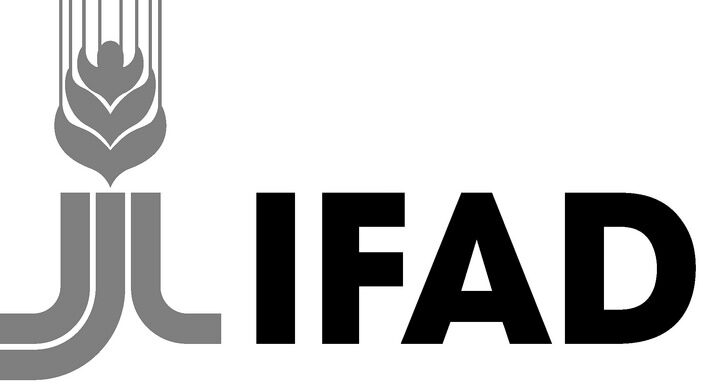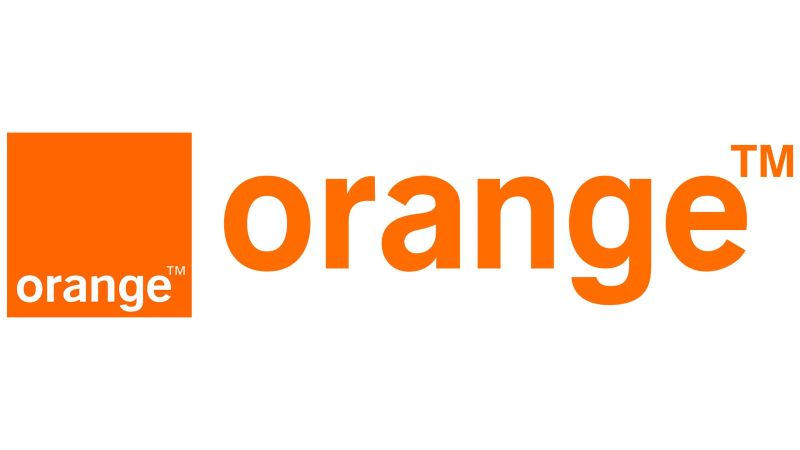Le Fonds international de développement agricole (FIDA) est une institution financière internationale et une agence spécialisée des Nations Unies dédiée à l’éradication de la pauvreté et de la faim en milieu rural. Il le fait en investissant dans les populations rurales. Le FIDA finance des programmes et des projets qui augmentent la productivité agricole et les revenus ruraux, et plaide aux niveaux local, national et international pour des politiques qui contribuent à la transformation rurale.
The Programme Management Department (PMD), under the leadership of an Associate Vice-President, is responsible for the overall programme of loans and grants of the Fund and is composed of five regional divisions, and an Operational Policy and Results Division.
The Country Programme Officer (CPO) position is located in a stand-alone IFAD Country Office (ICO)
The incumbent works under the overall policy and management guidance of division Director (D1) in WCA Division and the direct supervision of the Country Director this CPO position is mapped under.
Job Role
The Country Programme Officer is responsible for established programme/project coordination. S/He may supervise a Country Programme Assistant (G-5) and collaborates closely with other IFAD staff to ensure consistency, cohesion and synergy in programme related matters.
Key Functions and Results
1.COUNTRY OFFICE SUPPORT: In stand-alone IFAD Country Offices led by CPOs, the Country Programme Officer is accountable for day-to-day office administration and reporting in close collaboration with the CD who is not located in the ICO. S/he has accountability for financial and material resources and related processes including managing contracts for services. S/He collaborates closely with the Regional Office Administrative and Resource Analyst and other staff in the regional team in the IFAD regional office and provides inputs to budget preparation and monitors expenditures, manages contract completion and certifies payments as required.
2. COUNTRY PROGRAMME SUPPORT: The Country Programme Officer enhances the technical quality of IFAD country activities through programme (Results-Based Country Strategic Opportunities Programme RB-COSOP) and project (grants and loans) design, supervision, implementation, monitoring and evaluation, reporting and completion activities. S/He also provides substantive contributions toward the development of advice and technical guidance in support of sustainable government strategies, policies and programmes in agricultural development and rural poverty reduction. The Country Programme Officer is further accountable for capacity building activities including identifying, analyzing, documenting, harmonizing and disseminating both national and local issues as well as conditions and best practices and lessons learned among partner development agencies. Capacity building activities will include coordinating meetings, workshops and seminars with project management teams, government, partners and other stakeholders.
3. PARTNERSHIP BUILDING: As a key country team member, the Country Programme Officer enhances relationships and collaborations with in-country counterparts through the identification of synergies and proposing coordinated strategies with multilateral/bilateral donors and civil-society organizations involved in agricultural development and rural poverty reduction. S/He establishes and maintains counterpart contacts to promote programme and project collaboration and harmonization as well as identifies financing opportunities with other donors. S/he enhances relationships and builds strong engagement with relevant government agencies.
4. POLICY DEVELOPMENT/KNOWLEDGE MANAGEMENT: As a key country team member, the Country Programme Officer participates in relevant policy meetings and events of interest to IFAD’s target groups and which involve the government, donors, and civil society, including NGOs, in order to develop an enabling environment for sustainable, pro-poor development. The Country Programme Officer provides programme/project continuity in the country as well as substantive national cultural, political and economic or other development knowledge. From this perspective his/her participation in policy dialogue pertains to analyses of evidenced based recommendations from projects, analyzing their viability, making proposals and sharing the findings. This national perspective serves to enhance the linkage between the realities on the ground and the voices of the poor with the policies and programmes of the government as well as to ensure that regional programmes benefit from local initiatives that may be replicated. The Country Programme Officer significantly contributes to strengthening the enabling environment for policy dialogue on programme priorities of the relevant IFAD team. S/He maintains close contacts with other Country Programme Officers and Country Programme Analysts in the region for networking and knowledge exchange purposes.
5. MANAGERIAL FUNCTIONS: The Country Programme Officer is accountable for integrity, transparency, and equity in the management of IFAD resources.
Key Performance Indicators
Demonstrated technical expertise and credibility in country portfolio management creates the foundation for IFAD’s capacity and reputation for programme delivery and enhances its recognition as a reliable development partner. The Country Programme Officer maintains the standards for IFAD’s competence in development at the field level. Substantive support in the development of country strategy, project design, partnership building and policy development provides the foundation for enhancing sustainable government strategies and policies to improve the livelihoods of the poor and other disadvantaged groups.
Working Relationships
In the context of programme development and delivery, the Country Programme Officer ensures the exchange of information, advocates for programme and policy enhancements and ensures consistency and reliability in the provision of development assistance to the government. In collaborations with other members of the UN country team, bi-lateral development agencies, NGOs and country programme counterparts s/he establishes and maintains relationships and projects the image of IFAD as a credible/reliable partner striving for harmonization of development activities.
Job Profile Requirements
Organizational Competencies:
Level 1:
- Building relationships and partnerships – Builds and maintains effective working relationships
- Communicating and negotiating – Communicates effectively; creates understanding between self and others
- Demonstrating leadership – Personal leadership and attitude to change
- Focusing on clients – Focuses on clients
- Learning, sharing knowledge and innovating – Continuously seeks to learn, shares knowledge & innovates
- Managing performance and developing staff –
- Managing time, resources and information – Manages own time, information and resources effectively
- Problem-solving and decision-making – Demonstrates sound problem-solving and decision-making ability
- Strategic thinking and organizational development – Personal influence
- Team working – Contributes effectively to the team
Education:
- Level – Advanced university degree; In the absence of an advanced degree and additional two (2) years of professional experience is required.
- Areas – rural development, agriculture, economics, rural finance, development policy or other job related fields.
Degree must be an accredited institution listed on https://www.whed.net/home.php.
Experience:
- At least five (5) years of progressively responsible professional experience programme design, supervision and loan/grant administration with International financial institutions, development cooperation agencies, etc.
Languages:
- English (4 – Excellent)
- Desirable: Spanish, or Arabic
- Position-specific requirement: Understanding of and proficiency in one of the local official languages.
Skills:
- Budgeting, resource management: Know-how in budget administration and accounting, resource allocation and planning at divisional level
- Advocacy: Know-how in advocacy, to maintain and promote constructive dialogue around IFAD’s vision to external actors
- IFAD partners: Knowledge of IFAD’s partners’ functioning and mandate , such as the public sector (e.g. governments and policy, institutions and system), non-state actors (NGOs, CSOs, Foundations, etc.) and private sector actors
- Analytical skills: Outstanding ability to analyse and synthesize qualitative and/or quantitative information from a variety of sources and filter out key insights and recommendations
- Risk management (e.g. reputational): Identification and assessment of potential liabilities and risks in IFAD’s activities, particularly vis-à-vis third parties; ability to handle risks via contingency and mitigation strategies
- Stakeholder management: Strong alignment capabilities and consultation skills, building on effective interactions and relationships with different stakeholders (e.g. for the co-creation of communication material with member states) and ability to build and maintain a strong network (e.g. with journalists, media outlets, etc.)
- Time management: Adherence to deadlines under time constraints and pressure (e.g. to deliver governing body documents on time); ability to coordinate and manage complex workflows and in-house and external teams
- Adaptability: Adaptability and flexibility when facing new or unexpected situations, and to specific constraints and circumstances and managing complex processes
- Initiative and good judgment: High sense of proactive initiative-taking and good judgement (including on security matters)
- Interpersonal skills: Ability to deal patiently and tactfully with others (e.g. visitors, clients, callers, etc.), including senior individuals (e.g. high-level meeting participants)
- Political acumen: Ability to conduct sound political analysis and understand complex environments, providing options and advice
- Verbal communication: Clear, succinct and convincing verbal communication; highly professional, balanced and diplomatic language
- Written communication: Clear, succinct and convincing written communication in the language needed for specific role; highly professional, balanced and diplomatic language (e.g. for drafting of position papers, briefings, etc.)
- Topical expertise – Programme Mgmt for Agricultural Development: Expertise relevant to the specific role (e.g. For ethics office assistant, procedures outlined in the Code of Conduct, Discipline and Anti-harassment provisions of applicable rules and guidelines)
- Project/Programme mgmt (incl. coordination, design, development): Know-how in Project design and evaluation
Other Information
IFAD staff members are international civil servants subject to the authority of the President of IFAD. In accordance with IFAD’s Human Resources Policy, the President can decide to assign them to any of the activities of the Fund. All International Professional staff members are required to be geographically mobile and positions in the professional category are subject to changes in location at any time in line with strategic priorities and reform initiatives in IFAD.
Applicants for vacancies in the National Professional Officer (NPO) category should be nationals of the country in which the position is located. IFAD is committed to achieving gender diversity. Women are particularly encouraged to apply.





